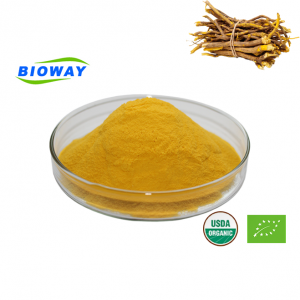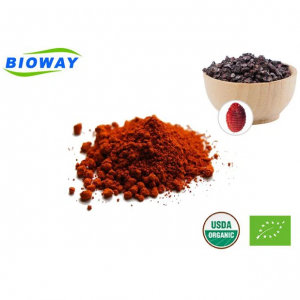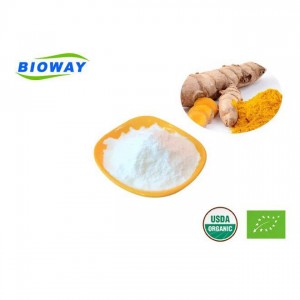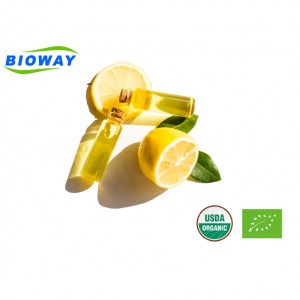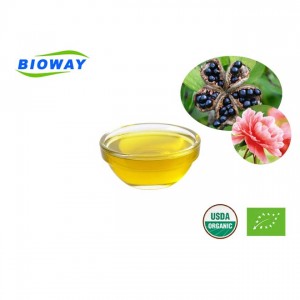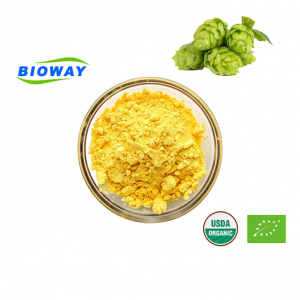Black Seed Extract Oil
Nigella Sativa Seed Extract Oil, also known as black seed extract oil, is derived from the seeds of the Nigella sativa plant, which is a flowering plant belonging to the Ranunculaceae family. The extract is rich in bioactive compounds such as thymoquinone, alkaloids, saponins, flavonoids, proteins, and fatty acids.
Nigella sativa (black caraway, also known as black cumin, nigella, kalonji, charnushka) is an annual flowering plant in the family Ranunculaceae, native to eastern Europe (Bulgaria and Romania) and western Asia (Cyprus, Turkey, Iran and Iraq), but naturalized over a much wider area, including parts of Europe, northern Africa and east to Myanmar. It is used as a spice in many cuisines. Nigella Sativa Extract has a long history of documented use dating back 2,000 years in traditional and Ayurvedic medicine systems. The name "Black Seed" is, of course, a reference to the color of this annual herb's seeds. Aside from their reported health benefits, these seeds are also sometimes used as a spice in Indian and Middle Eastern cuisines. The Nigella Sativa plant itself can grow up to about 12 inches tall and its flowers are usually pale blue but can also be white, yellow, pink, or light purple. It is believed that thymoquinone, which is present in Nigella Sativa seeds, is the major active chemical component responsible for Nigella Sativa's reported health benefits.
Nigella Sativa Seed Extract is believed to have various potential health benefits, including anti-inflammatory, antioxidant, and immune-modulating properties. It has been traditionally used in herbal medicine and is also incorporated into dietary supplements, herbal remedies, and natural health products.
| Product Name: | Nigella Sativa Oil | ||
| Botanical Source: | Nigella Sativa L. | ||
| Plant Part Used: | Seed | ||
| Quantity: | 100kgs |
| ITEM | STANDARD | TEST RESULT | TEST METHOD | ||||
| Thymoquinone | ≥5.0% | 5.30% | HPLC | ||||
| Physical &Chemical | |||||||
| Appearance | Orange to Reddish-brown Oil | Complies | Visual | ||||
| Odor | Characteristic | Complies | Organoleptic | ||||
| Density(20℃) | 0.9000~0.9500 | 0.92 | GB/T5526 | ||||
| Refractive index(20℃) | 1.5000~1.53000 | 1.513 | GB/T5527 | ||||
| Acid Value(mg KOH/g) | ≤3.0% | 0.7% | GB/T5530 | ||||
| lodine value(g/100g) | 100~160 | 122 | GB/T5532 | ||||
| Moisture&Volatile | ≤1.0% | 0.07% | GB/T5528.1995 | ||||
| Heavy Metal | |||||||
| Pb | ≤2.0ppm | <2.0ppm | ICP-MS | ||||
| As | ≤2.0ppm | <2.0ppm | ICP-MS | ||||
| Cd | ≤1.0ppm | <1.0ppm | ICP-MS | ||||
| Hg | ≤1.0ppm | <1.0ppm | ICP-MS | ||||
| Microbiological Test | |||||||
| Total Plate Count | ≤1,000cfu/g | Complies | AOAC | ||||
| Yeast &Mold | ≤100cfu/g | Complies | AOAC | ||||
| E.Coli | Negative | Negative | AOAC | ||||
| Salmonella | Negative | Negative | AOAC | ||||
| Staphylococcus | Negative | Negative | AOAC | ||||
| Conclusion Conforms with specification, Non-GMO, Allergen Free, BSE/TSE Free | |||||||
| Storage Stored in cool and dry places. Keep away from strong light and heat | |||||||
| Packing Packed in Zinc-lined drum,20Kg/drum | |||||||
| Shelf Life is 24 months under the above condition, and in its original package | |||||||
Nigella Sativa seed extract oil health benefits and uses may include:
· Adjuvant COVID-19 treatment
· Beneficial for non-alcoholic fatty liver disease
· Good for asthma
· Beneficial for male infertility
· Reduce inflammation markers (C-reactive protein)
· Improve dyslipidemia
· Good for blood sugar control
· Assist weight loss
· Helps regulate blood pressure
· Helps dissolve kidney stones
Nigella sativa seed extract oil, or black seed oil, has been used in a variety of applications, including:
Traditional Medicine: Black seed oil is used in traditional medicine for its potential health benefits, including its antioxidant and anti-inflammatory properties.
Dietary supplement: It is used as a dietary supplement due to its rich content of bioactive compounds, including thymoquinone and other beneficial ingredients.
Culinary uses: Black seed oil is used as a flavoring and food additive in some dishes.
Skin Care: It is used in some skin care products due to its potential skin-nourishing properties.
Hair Care: Black seed oil is used in hair care products because of its potential benefits for hair and scalp health.
This process results in the production of Nigella Sativa Seed Extract Oil using the cold-press method:
Seed Cleaning: Remove impurities and foreign matter from the Nigella Sativa seeds.
Seed Crushing: Crush the cleaned seeds to facilitate oil extraction.
Cold-Press Extraction: Press the crushed seeds using a cold-press method to extract the oil.
Filtration: Filter the extracted oil to remove any remaining solids or impurities.
Storage: Store the filtered oil in suitable containers, protecting it from light and heat.
Quality Control: Perform quality checks to ensure the oil meets safety and quality standards.
Packaging: Package the oil for distribution and sale.
Storage: Keep in a cool, dry, and clean place, Protect from moisture and direct light.
Bulk Package: 25kg/drum.
Lead Time: 7 days after your order.
Shelf Life: 2 years.
Remark: Customized specifications also can be achieved.

Express
Under 100kg, 3-5Days
Door to door service easy to pick up the goods
By Sea
Over300kg, Around 30 Days
Port to port service professional clearance broker needed
By Air
100kg-1000kg, 5-7Days
Airport to airport service professional clearance broker needed

Bioway Organic has gotten USDA and EU organic, BRC, ISO, HALAL, KOSHER, and HACCP certificates.

Composition Of The Nigella Sativa Seed
Nigella Sativa seeds contain a well-balanced composition of proteins, fatty acids and carbohydrates. A specific subset of the fatty acids, known as the essential oil, is considered the active part of the Nigella Sativa seed as it contains the main bioactive component Thymoquninone. While the oil component of a Nigella Sativa seed usually comprises 36-38% of its total weight, the essential oil component usually only accounts for .4% - 2.5% of the Nigella Sativa seeds total weight. A specific breakdown of the composition of Nigella Sativa's essential oil is as follows:
Thymoquinone
dithymoquinone (Nigellone)
Thymohydroquinone
Thymo
p-Cymene
Carvacrol
4-terpineol
Longifoline
t-anethole
Limonene
Nigella Sativa Seeds also contain other non-caloric components including Thiamin (Vitamin B1), Riboflavin (Vitamin B2), Pyridoxine (Vitamin B6), Folic Acid, Potassium, Niacin, and more.
While there are a number of active compounds found in Nigella Sativa including thymohydroquinone, p-cymene, carvacrol, 4-terpineol, t-anethol, and longifolene and others listed above; it is believed that the presence of the phytochemical Thymoquinone is largely responsible for Nigella Sativa's reported health benefits. Thymoquinone is then converted to a dimer known as dithymoquinone (Nigellone) in the body. Both cell and animal studies have suggested that Thymoquinone may support cardiovascular health, brain health, cellular function, and more. Thymoquinone is classified as a pan-assay interference compound that bind to many proteins indiscriminately.
The primary difference between black seed extract powder and black seed extract oil lies in their form and composition.
Black seed extract powder is typically a concentrated form of the active compounds found in black seeds, including thymoquinone, and is often used in dietary supplements or for incorporation into various products. On the other hand, black seed extract oil is the lipid-based extract obtained from the seeds through a pressing or extraction process, and it is commonly used in culinary, skincare, and haircare applications, as well as in traditional medicine.
While both the powder and oil forms may contain the same percentage of thymoquinone, the powder form is typically more concentrated and may be easier to standardize for specific dosages, while the oil form provides the benefits of the lipid-soluble components and is more suitable for topical or culinary use.
It’s important to note that the specific applications and benefits of each form may vary, and individuals should consider their intended use and consult with a healthcare professional or product expert to determine the most suitable form for their needs.







